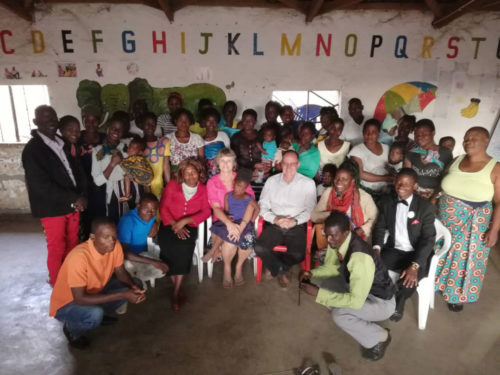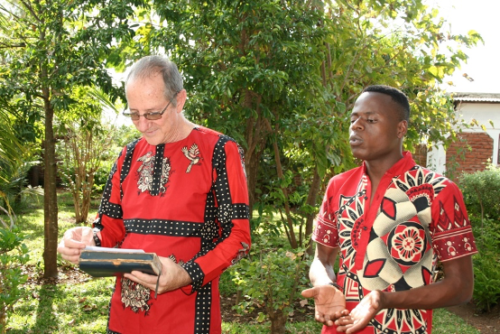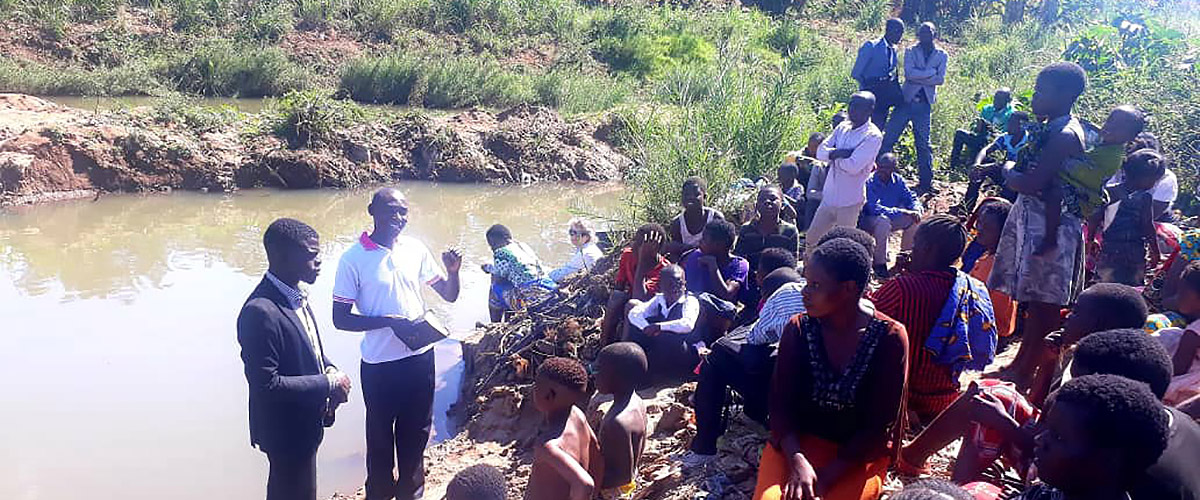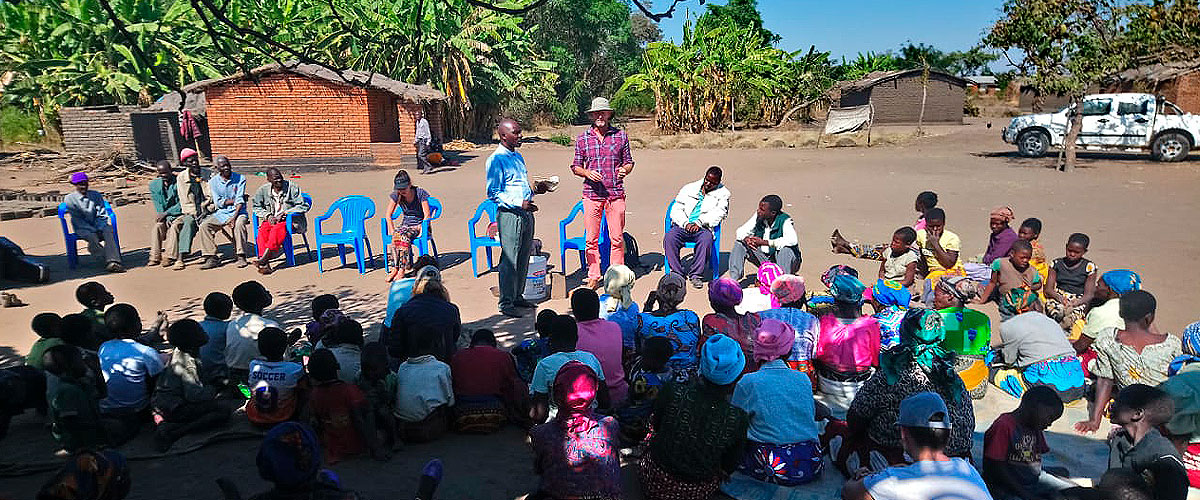As mentioned in Part 1 of our article, when we obeyed God, packed up our home and moved to Malawi to facilitate partnering with Four12 there, we had no idea how deeply the cultural differences would impact on our ministry.
Go into All the World
In our obedience to “go into all the world and preach the gospel to all creation” (Mark 16:15, NIV) and our commitment to upholding biblical culture as the model for all believers, we have learned many lessons.
We covered seven lessons in Part 1 of our article on Ministering to Other Cultures – a quick recap:
- Understand that relationship is key.
- Understand that the message of the gospel is restoring individuals into an intimate family relationship.
- Understand the need to ‘be all things to all men’ to win some.
- Understand that our path is littered with ‘missionary’ and NGO failures.
- Understand how poverty limits partnership, leadership training and even church growth.
- Understand how deep the level of rejection is.
- Understand that communal culture is different from individualistic culture.
Below follows the final 8 of 15 lessons we have learned along the way:
Understand that no matter the culture, people care deeply about how they are perceived.
 Visiting Africa is a vibrant, colourful, musical, hospitable experience. Some cultures, like the Malawian one, are people-pleasing to their core. When we first arrived, a pastor would rather lie and tell us he had three congregations, instead of one, to appear successful. Then he would fast and pray on the mountain for three days to find forgiveness from God. As you can see, the root of such behaviour is fear of man and a complete misunderstanding of the nature of God. Now we ask the wife to tell us the truth! For the outsider, it takes trust, discernment, love and patience before the behaviour and words hold the integrity we long for.
Visiting Africa is a vibrant, colourful, musical, hospitable experience. Some cultures, like the Malawian one, are people-pleasing to their core. When we first arrived, a pastor would rather lie and tell us he had three congregations, instead of one, to appear successful. Then he would fast and pray on the mountain for three days to find forgiveness from God. As you can see, the root of such behaviour is fear of man and a complete misunderstanding of the nature of God. Now we ask the wife to tell us the truth! For the outsider, it takes trust, discernment, love and patience before the behaviour and words hold the integrity we long for.
Performance is a way of gaining significance: we may love the choirs, brightly coloured uniforms and choreographed dances, but how do they measure against the biblical pattern of the New Testament church?
Understand the time it takes to shift a worldview based on witchcraft and fear.
The key is intensive leadership training. It’s common for members to attend church and still visit the local witchdoctor for healing rituals. Some have generational curses still operating in their lives, and others follow cultural traditions that perpetuate poverty based on witchcraft. One such example is that all unused plant material is burned to appease the gods. Where we teach them to mulch the farmlands to save water, they will only practice it if their faith overcomes the fear of a vengeful god. We regularly encounter religious demons that manifest in church services where leaders have pretended that the Holy Spirit is operating through them to gain approval from the congregation. This is only broken through discernment and good teaching with a demonstration of the power of the Spirit.
We realised how pervasive fear is when we understand the basis of some of the prayers in the church. They go up the mountain to fast and pray regularly; many of us would see that as praiseworthy – serious discipline and commitment! But God sees the heart. When we ask why they do this, the answer is usually about proving to God that they are good enough, starving the demon out, appeasing an angry god or asking for protection from curses placed on them. We were astonished to hear some young people’s definition of an improvement in their prayer life. They said, ‘We pray as we walk through the market so that we won’t be cursed by choosing food that has had a curse placed on it.’
When we pray out of faith to a Father who loves us, the prayer is fruitful. We had to teach the young people that, “ … He who is in you is greater than he who is in the world.” (1 John 4:4, NIV). Slowly, we teach and model our authority in Christ and the biblical way of casting out demons.
Understand the poverty of information and poor communication.
There is little access to phones, books or the Internet. This means that 90% of the leaders in Malawi are excluded from online training opportunities, reading articles, accessing the Four12 App or listening to preaches from the apostolic leaders. Even if we provide each pastor with an Android phone, he has to have money for airtime, then charge his phone for 6-hours at the local spaza shop before he can even receive a message. Some of our churches are outside of the network range, and other pastors only have phones that receive texts. These pastors have to wait for a runner to tell them when the next training time begins and they will then travel up to 120km on bicycle taxis to be there!
On the positive side, very few have access to written articles or YouTube channels containing bad doctrine. And very few are addicted to technology, although this is becoming more common among the city youth.
Understand the importance of learning the local language.
The worldview of the culture is locked up in the language. For example, when we heard that ‘abusa’ means “young shepherd boy” as well as “pastor”, we could teach effectively on how to look after the flock of Jesus. Even learning a few phrases for greetings means the world to people. It shows that you care enough and value their language enough to try to communicate. 80% of Malawians live in rural areas and know very little English. They love to learn from us, and we have seen the women’s confidence grow as they learn to speak the language in our pastor’s wives classes once a week in Lilongwe. That said, the teaching team have learned as much Chichewa from them! By understanding the language, we have also leant that the “praise” songs are often about us, and not about Jesus. Language learning takes dedication, but as you hear and use it every day, you pick it up more easily.
Understand the value of good translation.
 We soon learned that some of our translators were making up some of their own content. Others were unable to get the meaning of the complex words we used, resulting in us having to simplify and use relevant illustrations. When you go to another nation, remember that the hearers may never have seen a movie, read a book or used an elevator! God blessed us with a young Malawian man who joined us on The Base, travels with us everywhere we go, knows our heart, and quickly corrects our mistakes. He even negotiates a good price at the market when we would have paid much more for an item.
We soon learned that some of our translators were making up some of their own content. Others were unable to get the meaning of the complex words we used, resulting in us having to simplify and use relevant illustrations. When you go to another nation, remember that the hearers may never have seen a movie, read a book or used an elevator! God blessed us with a young Malawian man who joined us on The Base, travels with us everywhere we go, knows our heart, and quickly corrects our mistakes. He even negotiates a good price at the market when we would have paid much more for an item.
Finally, do not assume that the hearers have fully understood a concept until they have discussed it at length, and you see them doing what you have taught. We have found that the core teachings need to be translated and written in Chichewa, printed and physically given to each leader (there is no online access).
Understand the lack of foundational teaching in the average church in Africa.
Malawi has a poor education system that excludes 50% of their nation at Grade 7 level and operates a syllabus of rote memorisation. The consequence is that the average person struggles to read and understand their Bible. This leads to preaching using Scripture out of context or resorting to repeating Old Testament stories over and over again, without relevant application. Quite literally, if we don’t preach, they may not know the truth of the gospel.
In their first month of being born-again, most Christians in the First World would probably learn about the assurance of salvation, baptism in water and the Holy Spirit, prayer and how to read the Bible through one-on-one discipling in their local church. In Africa, where some pastors do not even own a Bible, it is common for prayer to be a babbling affair facing the wall, and for leaders to set up laws to qualify you to be a member.
We taught the foundations of faith in our leadership training last year, and it has revolutionised the churches: many are experiencing spiritual fruitfulness for the first time in years. Even as we write this article, we are receiving reports of 10 being baptised in Mzuzu, 12 being baptised in Lilongwe and the Holy Spirit filling pastors and wives. Some pastors are training leaders from all denominations in their area.
Understand the value of your contribution as a “saint” and your love in action.
 Your gift expressed in the village, city or church smashes every ‘man of God’ or ‘woman of God’ perception. For so long, the priesthood has been immobilised due to the leadership holding on to ministry for themselves, often as a source of power or wealth. When they see a young person giving a testimony of the deep work of God in their lives, it brings a realisation that everyone can be filled with the Spirit of God.
Your gift expressed in the village, city or church smashes every ‘man of God’ or ‘woman of God’ perception. For so long, the priesthood has been immobilised due to the leadership holding on to ministry for themselves, often as a source of power or wealth. When they see a young person giving a testimony of the deep work of God in their lives, it brings a realisation that everyone can be filled with the Spirit of God.
Understand the value of team.
As the Body of Christ, we demonstrate the ‘manifold wisdom of God … to the rulers and authorities in the heavenly realms’ (Ephesians 3:10, NIV). We can only do this as we realise that all the cultural groups in our sphere of influence are a team. Each person offering his/her gift, expressed fully in a servant-hearted manner, has a vital part to play in the transformation of a nation. We are not polarised: we are unified under Christ the Head. As we seek Him together, we will disciple the nations.
In summary, together, we need to commit ourselves to genuine friendships, building the family of God, understanding the impact of poverty and poor technology, three-fold rejection as well as the culture of witchcraft. It is wise to enlist good translators, model the priesthood of believers working in team, attempt to learn the local language, live among the people, impart foundational teaching of the Word (with relevant illustration) and worship in the presence of God.
Miss out on Part 1 of ‘Ministering to Other Cultures’? You can read it by clicking here.




